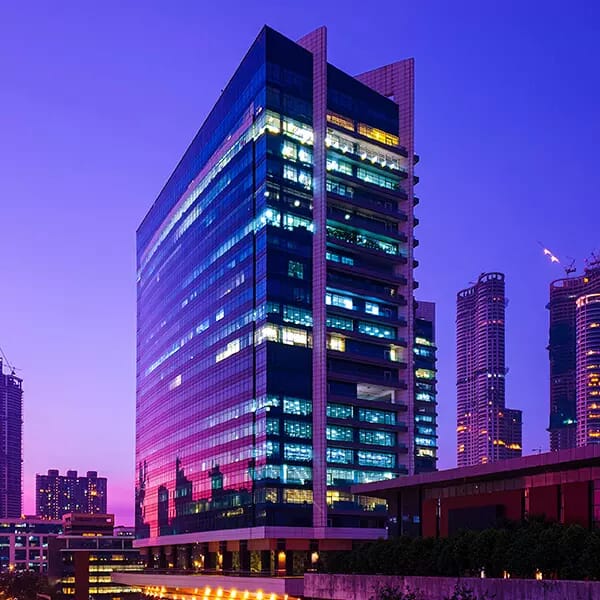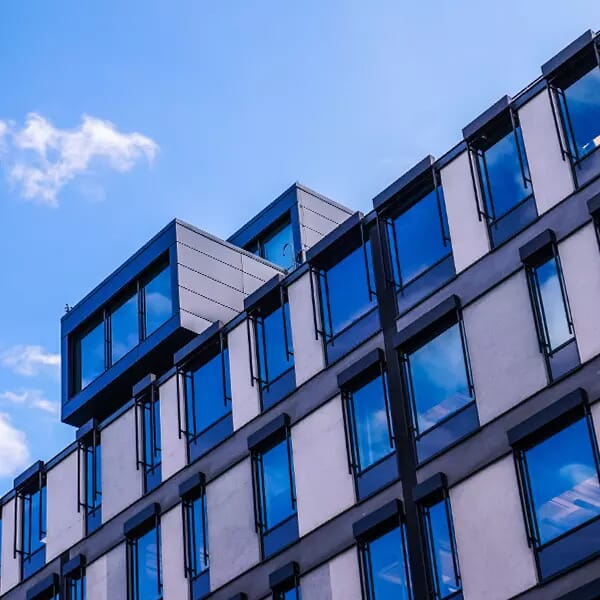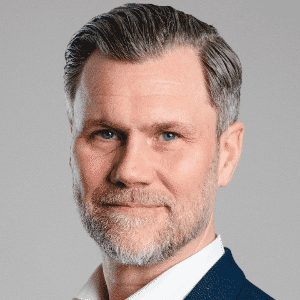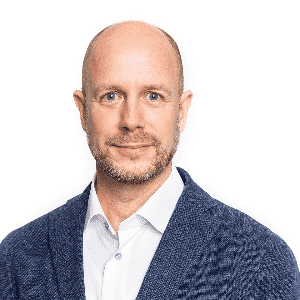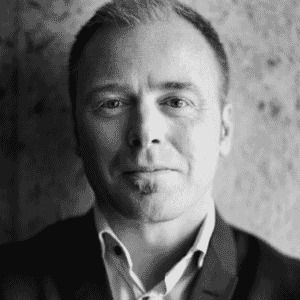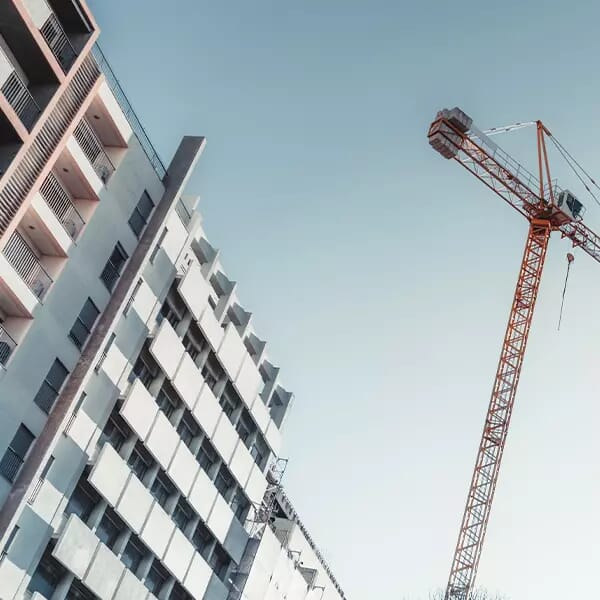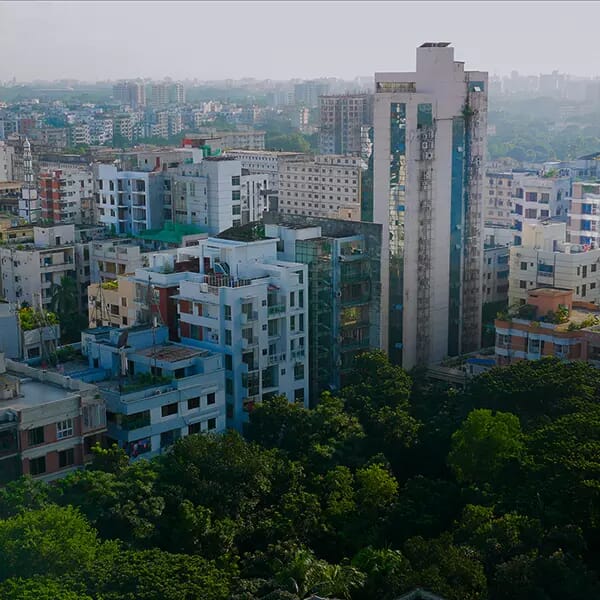 Credit: Arnaud Mesureur / Unsplash
Credit: Arnaud Mesureur / UnsplashData Sets Smart Decisions/Automation and AI to Drive Performance
PANELISTS:
 |
Dan Drogman
CEO & Founder Smart Spaces |
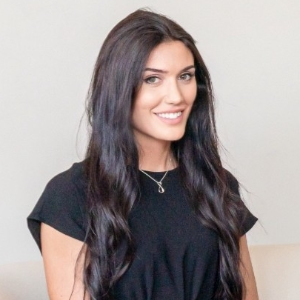 |
Francesca Brady
CEO & Founder AirRated |
 |
Max Wieberneit
CFO MeteoViva |
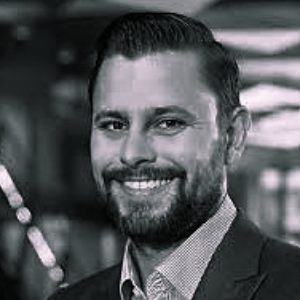 |
William Hulls
Head of Strategic Partnerships Demand Logic |
MODERATED & AUTHORED BY:
 |
Alex Edds
Director of Innovation JLL and Advisory Board Member, BCG |
‘DATA SETS SMART DECISIONS/AUTOMATION AND AI TO DRIVE PERFORMANCE’
Session Highlights
How can we use data and what tools are already available to maximise and leverage data to drive sustainable decisions in hospitality? August’s GRI session focused on this topic, and with panel of experts we delved into the current and future opportunities, and lessons learned from other sectors.ESG is topic at forefront of our minds. The latest IPCC report gives further evidence and clarity to the need to accelerate efforts in transforming the real estate sector. The report highlighted the need to continue to mitigate the impact of the built environment to attempt to limit the damage caused, but recognises the reality we are now faced with, and therefore the need to adapt to the impacts of a changing climate.
Technology is clearly going to be a key part of the solution to both of these strategies, and the data that is created and ingested by this technology will be key in helping our industry make the smartest decisions. And of course ESG is not just about climate. It is of course centre stage, but there are many other issues, many of which are interrelated, that need our attention: Air Quality and pollution, biodiversity, waste production and circular economy, water use, social inclusion and wellbeing.. all of these, and more, are now critical issues facing most businesses, and real estate is no different.
So the question is how to manage it. The old saying goes “ you can’t manage what you don’t measure” so what do we need to measure? what data exists now? What technology should we be using? And what is coming in the future that we should look out for? These are just some of the questions posed to our panellists, each coming with a different lens from a different part of the value chain.
- Francesca Brady – AirRated are certifications specifically focused on air quality. They do a lot of work in commercial real estate and residential and now more and more in hospitality. AirRated has 2 types of certifications – design certification and performance-based air score. They see the hotel sectors starting with design certification and design advice because it is perceived slightly risky to put sensors in rooms. The question is how we can optimise the design in the systems in our buildings to deliver healthiest air quality in the space?
- Max Wieberneit – MeteoViva has created the next generation of advanced building technology to optimise energy consumption in commercial buildings, helping to reduce CO2 and energy emissions by up to 40%. It is a fully automated version, creating a digital twin of a building and use it to forecast and create the optimal control data to come up with desired room climate at the lowest possible costs. They have no projects yet in hotel space because most of the hotel owners think that it is not yet the time to go for it as comfort aspects are still more important than energy or carbon footprint. This would seem like the elephant in the room for hospitality.
- William Hulls – Demand Logic, technology analytics platform, optimises property performance predominately through the BMS network and maintenance regimes (which is massive issue for the hotel industry). Currently they predominately look at commercial properties and haven’t worked in hotels, but see massive opportunity to do so.
- Dan Drogman – SmartSpaces has 2 products – one is app, which is an occupier app for commercial offices facilitating access to buildings and also understanding of energy profile and air quality, and second is a digital twin, which is visualizing multiple datasets in one interface, and then applying commands to optimize the spaces. The data and systems included access control system, lightning control system, BMS, and HVAC. They have a lot of experience with hotels and started out building websites and platforms for hotel chains.
Although some panelists have limited experience in hotel industry, we try to understand how much can be learned from other sectors.
JLL recently conducted some global research on sustainability and ESG, surveying 600+ decision makers. 78% said that climate risk is now a financial risk. This decade is the decade of action so we have to do more and quicker than we have before. The report found that policy makers were behind the curve and private sector were ahead, perhaps a sign that companies see ESG as a brand issue with customers and staff. That said, there is general recognition that more regulation will be coming to push the whole industry further.
Most interestingly, the report found that decision makers saw data as the biggest single enabler of change. 45% of investors saw digital technology as a top 3 priority, with 74% saying the current technological infrastructure is poor and see it as a barrier. According to Hospitality Technology, 54% of Hotels plan to spend more on technology.
With this in mind, it would interesting to know if the panelists – all of which are tech companies – have seen their clients unlock bigger budgets for technology?
- Francesca – yes, the clients are spending more. Covid has been a catalyst, but also all of the discussion on net zero has been driving the sustainability and healthy buildings agenda. Clients feel safe with numbers, so that’s why data is important. A lot of things are relatively invisible, especially with air quality - unless you monitor it, you cannot see it. A lot of property owners have been doing proof of concepts for the past few years, but are now ramping up the scale and commitment. However, datasets like energy consumption and air quality should be looked together and not separately. This isn’t happening a lot, but we are starting to see the conversation shift, and will likely see new experts and expertise help to make decisions based on multiple datasets.
Energy and carbon is more measurable, and there are financial costs associated with kilowatt hours or carbon tonnes. There is a more tangible ROI associated with energy. So if that is the case, what data you actually need gather and what decisions are made from that data?
- Max – Most clients are still in the piloting stage. As the technology proves its value, some clients are looking to expand, but we had to implement some insurance or guarantee on our technology performance. And now we see that legal environment is changing slightly, ESG pushes a lot of investments in new technologies. A couple of clients said that it is becoming very important to the board and not just for marketing purpose. A lot of projects, which are not sustainable, soon cannot go through the investment process. We have all started with our own technology, but the key is to open access to our technologies and get start-ups to work together so we can build a fully functioning ‘tech stack’ for clients. This is crucial for the process and for the investors in technology to feel safe, rather than thinking ‘when I invest in that, I am bound by that technology’. Better is to create a network of technologies working together.
Message to the audience and the market is that there is a lot of education and awareness needed in order to understand how to buy the right technology products. The Tech industry also has to come together and offer packages to clients, to help clients solve some of the big challenges. The majority of ‘users’ don’t know what data to capture, how to analyse it, and then deduce what is valuable. So we need to combine datasets, visualize it, and put it in the hands of users, combined with the expertise.
- William – We are starting to expand our offering and it is in line with opening up to different systems and willingness to share that data between companies for the good of the client. Basically, it is a simple process: we get information about a building via a single device, and on the back of that we get all data on our network. We take all of that data that goes through our virtual asset model, and we build a platform that gives complete analysis of how buildings are performing, plus use algorithms to identify friction points. And then we work with building management teams to make changes. Integrating a core workflow is so important at the early stage with suppliers as this is the biggest point of weakness in the process. For us is not just opening the cheque book in order to purchase a technology but also expertise of someone who understands what actually should be done and to get that full workflow process in place. The question is again from the budget perspective – we have a lot of conversations with a lot of large companies who want to see ROI – what they can expect and when they can expect their money back. The education phase must be on the market, because only tangible things are not enough. We (the tech industry) need to do a better job of communicating the RoI and wider benefits, and clients need to better understand the wider value of ESG.
Aligning the incentives along a value chain is key to deliver ESG. Introducing new sets of data need to be managed, and therefore there needs to be incentives to do so.
- Questions from hotel operator side (RHG) – First, as hotel operator, we see that we are driven by retrofit. How easy is it to retrofit those new technologies in existing buildings because new buildings are not that often built now? Secondly, we as hotel operators all have same targets, we want to go to net zero as operators and asset owners. But we have currently very small teams because of Covid, so there are not many specialists now – are there ways to do it remotely, to bring it to expertise remotely, how do you do that? Third point is about aligning targets and strategies and bringing expertise to hotels from other asset classes – maybe we can work together but how can you combine forces from real estate owners and operators?
Last question deserves a separate meeting and something to consider for future GRI session. In terms of the first and seconds points:
- Dan – There is a misconception that technology is just for new buildings, but a majority of our portfolio is existing buildings. Developing the drivers for the control systems in hotels and in the commercial offices is a lottery because there are so many legacy systems. But we can achieve smart buildings and full integrations in older buildings. Regarding the second point, it is a key aspect. None of our buildings really have the level of expertise on sight. By getting our data connected to cloud, with digital twin you have this data globally anywhere you have internet access. This gives you the ability to have people with the right knowledge and interpret the data and make those improvements.
The ability to take the data and put it in font of someone who can understand and can action it is important. They can understand the data, make the decisions, suggestions. But particularly important is having someone on the ground to actually do what is necessary to make changes. This i where incentives kick in. If that model can be creative, where the data is centralized and experts are looking in it, and they are incentivized to find areas of improvement and then there is a person on the ground ready to take that instruction and make those things happen, this may work quite well.
What we have just discussed is assuming that we need people involved. The promise of truly smart buildings is full automation - actually removing people from the equation. How close we are to that, is it a good place to go, will that help us to achieve some of the things we need to achieve quicker?
- Questions from hotel operator side (Six Senses) – Question about room comfort. Some worry that because of technology some room settings maybe is not what guest wants. Coming back to hesitation of hotel owners to implement the automation. How real is that perception? Is it an emotional thing that automating a building removes the ability for guest to set their own limits, does it impact guest experience?
- Max - From our technology perspective, our technology (which might not be true for all other technologies) was designed to run fully automated, and if anything goes wrong, we have a team of engineers in the back which are there to find out what goes wrong and inform teams on location. So, our idea is to make it fully automated, and using all parameters that are meaningful to building users and building owners. Technology is able to offer a sort of comfort level going from min to max temperature for room. The challenge is how to reduce energy consumption without hindering the comfort level. This is where technology and education of clients have to go hand in hand. We all are going through the learning curve. Next 10 years is crucial for all of us – owners, operators and users. People will ask “do I need the ability to adjust the temperature from 5 to 30 degrees” Maybe not? Maybe within set parameters, so long as communication is clear as to why.
- Dan – For our platforms we are using control engine which is very transparent. It gives you the control on the automation. We have certain rules as templates, you apply those rules to your building, but we also give ability to the user to override that. It is about transparency in control. We are not using that automation in the control side but only for data, predictions in the future. We don’t have any black box algorithms applied to our datasets, so we are transparent.
- Francesca – Control + Knowledge. I understand that as humans we want control over our environments, especially recently. We want to know about our environments and control it. We need to be careful with that approach, particularly in hybrid buildings – those trying to be sustainable and taking in mind healthy buildings aspects because if you have a hybrid ventilation system with windows opened – it is great for sustainability, but perhaps not good for pollution. You are compromising something to satisfy something else. We do need to know the consequences of our actions. Control and knowledge are important. We are specialist in air quality and can advise ‘if this, then that’. If you are gathering data on continuous basis you can be more confident as to which actions have which consequences..
Conclusion (by the moderator):
Certainly, full automation is not here yet, but much of the technology is here already. There are some key challenges to overcome; skills and knowledge; accessing and combining the right datasets; and communication with end users. There seems to be a call out to the tech industry to work together more – to align product offerings into complete solutions. On the client side, as a customer, the question seems to be “do I need to skill up and find the best tech solutions that I need to combine into the solution I need, or do I wait until that single solution exists?” The problem is, the total solution does not yet exist and we don’t have time to wait. So the message is, start with what you can measure, build on it, adding new data sets, and learn as you go. Be clear about where you want to go, and find the right partners that can support you.
Good luck. This is the decade of action!
The opinions expressed in this summary are those of the Co-chair/s and may differ from the opinions of the organisations they represent and other employees of that organisation.
